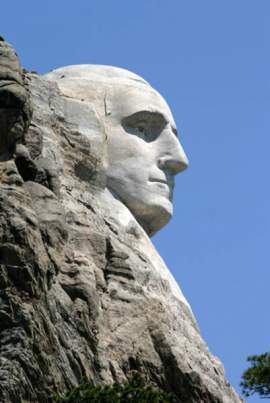
Symbolic Speech Explained

Popular In Constitution
Purpose Of Lifetime Appointment And Pros And Cons Enumerated Powers Bicameral Legislature Background Article 3 Of The Constitution We The People 1st Amendment Who Wrote The Constitution Judicial Review Equal Protection Clause 5th Amendment 10th Amendment Three Fifths Compromise
Symbolic speech is seen as a representation of ones beliefs or messages in the form of nonverbal communication. This type of presentation can be found in venues of political activity in the form of silent rallies, marches, the wearing of apparel such as pins and armbands, and the exhibition as well as destruction of nationally-recognized items such as the practice of flag-burning.
A landmark Supreme Court case that held such practices as its focus for contention was Texas v. Johnson. The Court’s ruling reversed flag-desecration prohibitions in all but 2 states. Though it may be applicable to multiple parts of the Constitution, probably the most significant area is that of the First Amendment. This Amendment entails that no law infringe upon the rights to the "free exercise of religion," "freedom of speech," and "freedom of the press". Symbolic speech, then, appears to touch upon these in some way or another, especially when referencing war protests.
A significant example of a
major case concerning that of symbolic speech Tinker v. Des Moines. In this case, five students had been suspended due to their
wearing of armbands denoting peace. They argued that such apparel denoted a
form of symbolic speech, which is a branch of rights set forth within the First
Amendment. The Court ruled in their favor, finding that such suspension
violated their Constitutional rights to freedom of speech. These individuals
were not seen to have encroached on the rights of others, nor did they create
any disruption out of the ordinary. Their wearing of the patches presented no
irregularity other than a difference in clothing.
Another case, which challenged the parts of the
Constitution that dealt with that of symbolic speech, was United States v.
O'Brien, which had varying consequences. The basis of this case arose from
O'Brien's burning of his Selective Service card on the steps of the courthouse.
In his mind, he did so in protest of the Vietnam War. In the view of the Government,
however, he had violated their rule that registrants maintain possession of
their draft cards so as to ensure the continued appropriate procedure of the
military draft. O'Brien, however, believed that his actions were just a form of
symbolic speech as can be supported by the First Amendment.
The Supreme Court ruled against him, though, as it set forth that the country still had a distinct interest in maintaining the integrity of draft cards. Therefore, despite its right to protect freedom of speech rights, it does not possess the same rights to "protect all things that may be extraneously labeled symbolic speech," such as occurred in this case. These two varying cases represented both the existence of adequate forms of symbolic speech as well as situations in which such actions must not also interfere with other governmental concerns.
NEXT: The "War Powers Clause" Explained





















